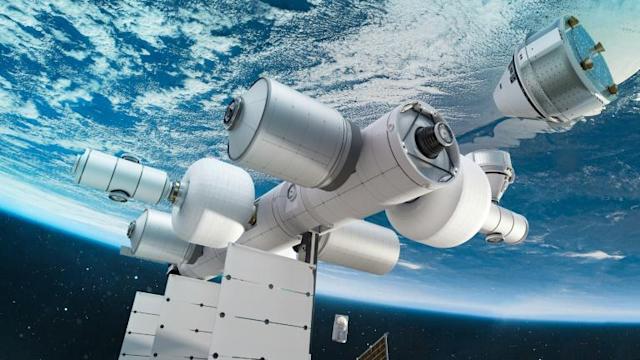
WASHINGTON, Dec 3, 2021 (BSS/AFP) - NASA on Thursday awarded three
companies hundreds of millions of dollars to develop commercial space
stations it hopes will eventually replace the International Space Station,
which is due to retire around the end of the decade.
Jeff Bezos' Blue Origin, aerospace company Nanoracks, and defense
contractor Northrop Grumman won $130 million, $160 million and $125.6 million
contracts respectively to develop their orbital outposts.
A fourth company, Axiom Space, was previously awarded a $140 million
contract.
The US space agency is increasingly turning to private industry to develop
hardware it once made itself, in order to reduce costs and to focus on its
ambitious goals, which include building habitats on the Moon and preparing
for a crewed mission to Mars.
"We are partnering with US companies to develop the space destinations
where people can visit, live, and work, enabling NASA to continue forging a
path in space for the benefit of humanity while fostering commercial activity
in space," said NASA chief Bill Nelson in a statement.
Blue Origin is partnering with Sierra Space to develop Orbital Reef, which
will house up to 10 people in the second half of the decade. It has been
described as "a mixed-use business park in space" that will support
microgravity research and manufacturing.
Nanoracks' space station, which it is developing with Voyager Space and
Lockheed Martin, is called "Starlab."
Nanoracks is targeting launch for 2027 and envisages a biology lab, plant
habitation lab, physical science and materials research lab, and an open
workbench area.
Northrop Grumman, which already developed a spaceship called Cygnus that
provides cargo deliveries to the ISS, plans to build its station module by
module, including areas for science, tourism and industrial experimentation.
It has been 21 years since the first long term residents arrived on the
ISS, a symbol of international cooperation, especially between the United
States and Russia.
It is currently rated as safe until 2028 and new administrator Nelson has
said he hopes it will last until 2030, by which time NASA wants the
commercial sector to step up and replace it.